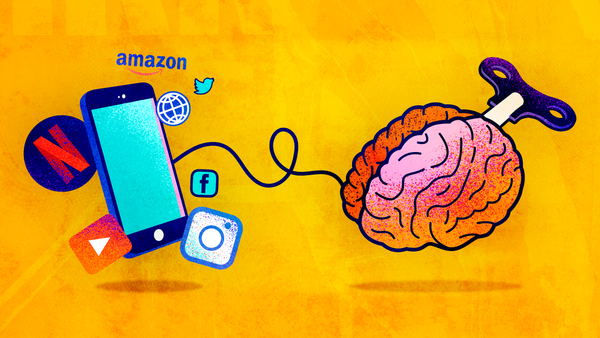Amazingly Clear 6 Signs to Spot Red Flags Early in Relationships
Learn how to identify six clear signs of red flags in relationships early on to protect your emotional well-being and build healthier connections.

When you first start dating someone or enter a new relationship, it's easy to overlook warning signs, especially if you're caught up in the excitement of getting to know someone new. However, spotting red flags early can save you from emotional distress later on. While nobody is perfect, there are clear signs that indicate potential problems. Here are six amazingly clear signs to spot red flags early in relationships, so you can protect your emotional well-being and build healthier connections.
1. Lack of Respect for Boundaries
One of the earliest signs of a red flag is when someone consistently disrespects your boundaries. Healthy relationships are built on mutual respect, and that includes respecting each other’s emotional, physical, and personal limits. If your partner pushes, disregards, or dismisses your boundaries, it’s a serious warning sign.
- How it looks: They might pressure you into doing things you're uncomfortable with, constantly show up uninvited, or guilt-trip you when you ask for space or time apart.
- Tip: Establish clear boundaries early on, and observe how your partner reacts. Someone who respects you will honor your boundaries without question.
2. Controlling or Manipulative Behavior
Control and manipulation can be subtle at first, but these behaviors often escalate over time. A partner who tries to control what you do, where you go, or who you spend time with is exhibiting a red flag. Similarly, manipulation might show up as emotional blackmail, guilt trips, or making you feel responsible for their happiness.
- How it looks: They may dictate your decisions, act jealous of your friends or family, or try to isolate you from others. Emotional manipulation can include making you feel guilty for things that aren’t your fault or constantly making you prove your loyalty.
- Tip: Be on the lookout for patterns of behavior where you feel you're losing control over your own life or decisions. A healthy relationship encourages mutual independence.
3. Lack of Accountability
Everyone makes mistakes in relationships, but how your partner deals with those mistakes speaks volumes about their character. A major red flag is when someone refuses to take accountability for their actions and instead blames others for their problems. If they can’t own up to their mistakes, it’s unlikely they’ll take responsibility for other aspects of the relationship.
- How it looks: They frequently make excuses for their behavior or blame external circumstances for their actions. They might also deflect blame onto you or others when things go wrong.
- Tip: Pay attention to how your partner reacts when confronted about their behavior. Healthy relationships require both partners to take responsibility for their actions.
4. Constant Jealousy or Insecurity
While a little jealousy can be natural in relationships, constant or extreme jealousy is a sign of deeper issues. If your partner is overly possessive or frequently accuses you of being unfaithful without cause, this could be a sign of controlling behavior rooted in insecurity. Jealousy can lead to trust issues and unhealthy dynamics in the long run.
- How it looks: They may constantly ask who you’re talking to, accuse you of flirting, or monitor your social media activity. Over time, this behavior can become suffocating and erode trust.
- Tip: In a healthy relationship, trust is foundational. If you feel like you're being unfairly accused or constantly having to defend yourself, it’s important to address these feelings early on.
5. Emotional Unavailability
Another red flag to watch for is emotional unavailability. If your partner has difficulty opening up, expressing their feelings, or engaging in deep, meaningful conversations, it may indicate that they aren’t ready for a committed, emotionally intimate relationship. Emotional unavailability can lead to one-sided relationships where your emotional needs are never fully met.
- How it looks: They avoid discussions about feelings, change the subject when things get emotional, or shut down when asked about their thoughts on the relationship. Over time, this can make you feel distant or neglected.
- Tip: Emotional connection is key in any relationship. If your partner consistently avoids emotional intimacy, consider whether the relationship will meet your needs in the long term.
6. Quick to Anger or Displays of Aggression
While everyone gets angry from time to time, someone who frequently loses their temper or displays aggression can be a major red flag. Anger issues, especially when directed at you, are a sign of deeper emotional instability that can lead to unhealthy and potentially abusive relationships. Watch for patterns of aggressive behavior early on, as they often escalate over time.
- How it looks: Your partner may overreact to small problems, raise their voice often, or become physically aggressive (e.g., hitting objects, throwing things, or invading your personal space when angry).
- Tip: If you feel unsafe or uncomfortable when your partner is angry, it’s important to take this seriously. No one should feel threatened in a relationship, and addressing aggressive behavior early on is crucial.
Final Thoughts: Trust Your Instincts
When you're in a new relationship, it’s essential to trust your instincts. If something feels off, it likely is. Red flags aren’t always obvious, but by paying attention to these six clear signs—disrespect for boundaries, controlling behavior, lack of accountability, jealousy, emotional unavailability, and anger issues—you can spot potential problems early on. Protect your well-being by addressing these issues head-on or considering whether the relationship is right for you. Remember, a healthy relationship is built on mutual respect, trust, and emotional safety.
You May Also Like :
- The Narcissistic Mask: How Charisma Can Hide a Dark Personality
- 9 Subtle Signs People May Not Find You Attractive
- What Your Face Reveals About Your Personality and Emotions
- How Do I Know If I’m in a Relationship with a Narcissist? Signs, Symptoms, and What to Do
- Does a Narcissist Know They Are a Narcissist? Understanding Narcissistic Awareness
- The Untold Story of a Brave Child Activist: A Hero Who Fought Against Child Labor
- 7 Holistic Approaches to Boost Mental Health and Well-Being
- Anxiety Management: Strategies, Symptoms, and Treatments You Can Try at Home
- Stress Effects on Professional and Personal Life: 8 Best Ways to Overcome It
10. Why Do People Feel Pleasure in Others’ Misfortunes? Understanding Schadenfreude
Valid Laws is a reader-supported publication. To receive new posts and support my work, consider becoming a free or paid subscriber.
Thanks for reading Valid Laws! This post is public so feel free to share it.



